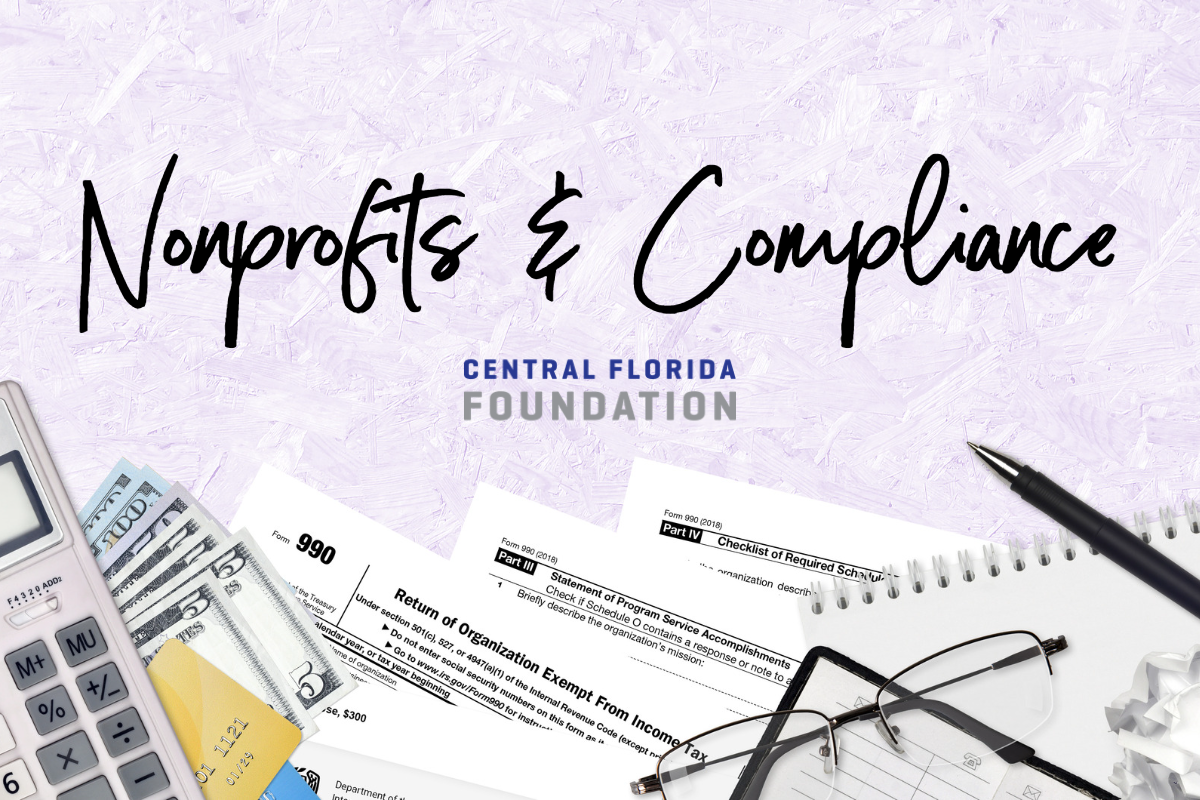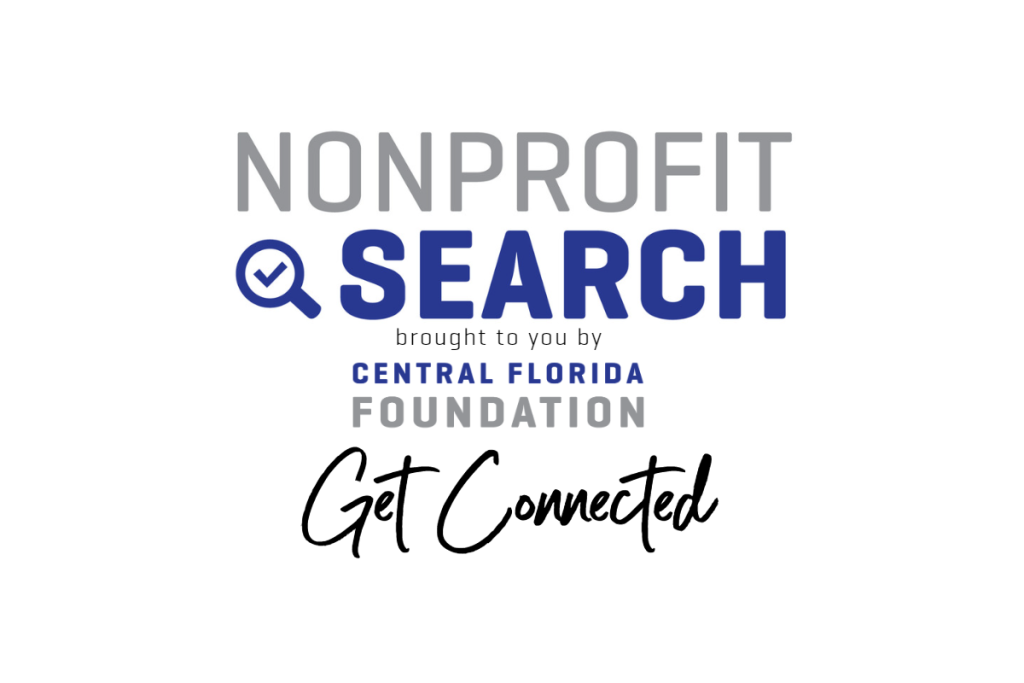
Forms and More Forms: What Nonprofits Need to Know About Compliance
by Sandi Vidal, Central Florida Foundation’s VP of Community Strategies and Initiatives
Table of Contents
“No one ever told me about that form.”
It’s a common response I receive when I ask for forms from nonprofits during our grant due diligence process (which are the steps we take to ensure a grant is being awarded to a legitimate, qualified 501(c)3 organization). And, while this might be a common response, it doesn’t change our response: “We need that form filled out.”

Compliance, which is the act of being up to date on forms and regulations, can feel complicated and overwhelming; however, it’s crucial that nonprofit leaders have a good handle on this very topic so that their organization remains in good standing with the government and with grantmaking organizations, such as Central Florida Foundation.
Compliance and Best Practices
When you become a nonprofit, just like any other business, there is no manual handed to you with how-to run your business advice. There are tons of places to find the information, but it is scattered throughout books, classes, and internet websites. Because of this, I have compiled a list of common and not-so-common forms all nonprofits should know about to remain in compliance as a registered nonprofit organization. They are in alphabetical order within the category for ease of reading. Please note, though, this is not an exhaustive list, so always check your state and local governments for additional requirements.
Nonprofit Forms
1023: Complete a Form 1023 with the Internal Revenue Service to apply to be recognized as a tax-exempt organization. This document is open to public inspection so keep a copy in your permanent records.
990/990-EZ/990-N: These are informational returns filed annually with the Internal Revenue Service (IRS).
Which form is right for your organization?
- 990: Organizations with revenue over $200,000 or total assets of $500,000 or more must fill out this form; the 990 is the most comprehensive of the forms.
- 990-EZ: Organizations with revenue between $50,000 and $200,000 and total assets of less than $500,000 can use the abbreviated 990-EZ.
- 990-N: Organizations with revenue $50,000 or less; the 990-N is a simple postcard-style form.
Organizations can always file a full return (a 990) but following these revenue guidelines above shows the minimum your nonprofit must file. Failure to file these financial reports for three years results in removal from the IRS Pub. 78, a listing of all tax exempt organizations, and causes a 501(c)3 status to be automatically revoked.
990s are open to public inspection with the ability to remove only certain schedules.
Annual Report: An annual report needs to be filed with the State of Florida each year which includes your business and mailing address, your registered agent, and a list of board members. The report is filed to the Department of State.
Articles of Incorporation: This is a legal document filed with the State of Florida to create a corporation. The document should state the corporation’s name, purpose, and structure.
Bylaws: This is a set of rules that govern how a corporation is run. They should cover topics such as the board of directors including terms and term limits, officers, committees, voting, and meetings. Click here to view a sample of a nonprofit bylaws document.
Determination Letter: The IRS will issue a determination letter that will document the nonprofit’s tax exempt status. It will generally declare the organization as a public charity. Private foundations have different guidelines and deductibility rates. Read more on 501(c)3 determination letters here. (Nonprofit Search, the Foundation’s searchable database of local nonprofits, calls your determination letter an IRS Letter of Exemption. See below for more on Nonprofit Search.)
DBA: A DBA, or “doing business as,” is an operating name that a business can use in addition to its legal name. This can be helpful if the business’s legal name is too long or difficult to remember. This can be filed with the State of Florida and is referred to as a fictitious name.
Profit and Loss Statement: A profit and loss statement, also known as an income statement, is a financial statement that shows an organization’s revenue and expenses over a fiscal year period. This document is a must-have to complete your 990 and to track your spending against your budget.
Solicitation Permit: The Solicitation of Contributions Act requires anyone who solicits donations from a location in Florida or from people in Florida to register with the Florida Department of Agriculture and Consumer Services (FDACS) and to renew annually. To register online, you can go to www.FDACS.gov. To speak with someone regarding registration, contact FDACS at 1-800-HELP-FLA (435-7352) or via email at Charities@fdacs.gov.
SS-4: Once an organization has been incorporated in a state, complete an SS-4 with the Internal Revenue Service to obtain an employer identification number (EIN).
State Registration: A nonprofit must register with the State of Florida through SunBiz.org. This process typically involves providing information about the business or nonprofit, such as its name, address, and purpose. As noted earlier, SunBiz.org is also where annual reports are filed.
Compliance through these forms above are part of a strong foundation for a nonprofit. Several of the forms need to be updated annually and should be put on your calendar to file.
Forms and Nonprofit Search
If you’re a Central Florida-based nonprofit organization, we encourage you to join our Nonprofit Search (NPS) searchable database. Being a part of this platform not only lends credibility to your organization through your commitment to transparency but is also the first step in becoming eligible for grants.
To have a Nonprofit Search profile, you must stay current with many of the above forms and upload them annually to your account. Check out this NPS Annual Update Checklist to review the forms you’ll need in order to maintain a current profile.
This blog post is not legal or accounting advice. Please consult an attorney or certified public accountant if you have further questions.

